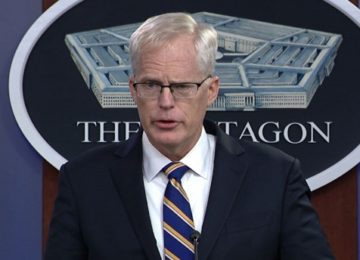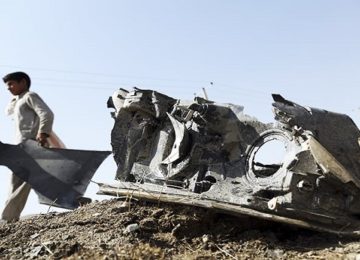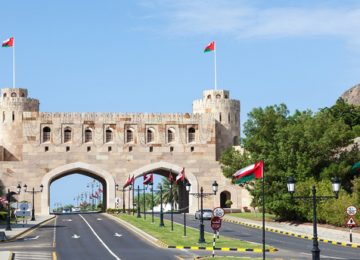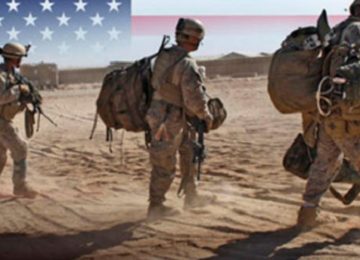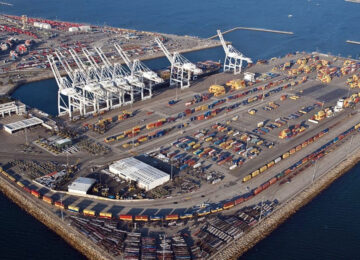CRSS Executive Director Mr Imtiaz Gul, while speaking at the Pathways to Change: Pakistan Policy Symposium at Woodrow Wilson Center in Washington, has said that the talk on Afghan peace should move beyond ‘support for terrorists, terror sanctuaries and do more mantra’ when it comes to Pakistan and its role in Afghan peace. While speaking at the symposium’s Afghan panel, Mr Gul further said that Pakistan should be granted the same geo-political considerations as others in the region. He further asserted that the Afghan nation is hopeful that dialogue and direct Afghan-American negotiations will resolve the Afghan quandary and end the war birthed by occupation.
Find the full speech below:
“Let us contextualise the current scenario. From a Pakistani perspective, the pendulum in the triangular US-Afghan-Pakistan relations seems to have moved from negativity to the willingness to seek joint solutions. The US-led narrative has earlier been negative all through. President Trump spiced it up further through his intimidating South Asia Strategy, only to start backpedalling with the appointment of Zalmay Khalilzad as a special envoy for peace and reconciliation. This also underscores a deviation from kinetic approach by the US to the search for a political settlement – a goal common to both Pakistan and the US itself. Why? Because the 14 months since Trump’s South Asia strategy have been the bloodiest compared to the corresponding period in previous years, with 39 percent increase in violence between January and September 2018. UNAMA documented 8,050 civilian casualties (2,798 deaths and 5,252 injured).
Let us first focus on key messages from three of the major stakeholders:
Message from Zalmay Khalilzad, Special Envoy for Peace and Reconciliation in Afghanistan:
“Bring authoritative Taliban delegation to the table. We want a negotiated way out of the conflict”. The Taliban welcomed the direct talks because they see their viewpoint strengthened i.e engaging with the Afghan government for peace will be a waste of time. The danger is that if the US comes under pressure and denies it had discussed with the Taliban in Qatar the military withdrawal, the US-Taliban peace dialogue will be grounded immediately.
Taliban:
The meeting and talks between representatives of the Political Office of Islamic Emirate and representative of the State Department (Zalmay Khalilzad) is a pivotal path to reaching an understanding and attaining peace that has absorbed the attention of everyone. The Afghan nation is hopeful that dialogue and direct Afghan-American negotiations will resolve the Afghan quandary and end the war birthed by occupation.
Message from Pakistan:
a) Reluctance on the part of any stakeholder – in the initial phase of the process – MUST not be taken as insincerity. Instead this should be viewed as genuine concern by the stakeholder,
b) Mutual trust and patience required for an intricate political process with so many spoilers out there.
c) Public denunciation and media trial must stop.
d) Don’t allow detractors – the huge vested interest associated with the war economy and the narcotics trade – to disrupt the process – even if the violence continues.
e) The peace process is stalemated and violence has touched new unprecedented levels. It requires positive engagement by all friends of Afghanistan. The onus is not on one country alone; every party including those using Afghanistan for proxy battles against others are responsible for the current stalemate.
f) Accusatory finger, instead of singling out one country, should point also to the issues that Omar Samad and many other Afghans themselves have pointed out; such as fissures in governance, inadequate security measures, growing dissatisfaction tied to corruption and rule of law, and territorial soft-spots. SIGAR Report on areas contested by Taliban or under their influence, and the booming narcotics trade suggests the grave nature of this situation.
g) Narco economy in fact moves hand in hand with the war economy. A United Nations opium-cultivation report released this quarter found that the estimated value of opiates produced in Afghanistan nearly doubled from $1.56 billion in 2015 to $3.02 billion in 2016.
h) Don’t look at Pakistan through the prism of your allies – and engage it as an independent country which enjoys the support of the entire region minus of course India.
i) Pakistan needs international support on the issue of fencing its border with Afghanistan. This is the internationally recognized boundary of Pakistan and hence the country should be conceded the right to secure it the way it wants – the way President Trump wants to raise the wall to Mexico.
j) Stop further securitizing Afghanistan (Erik Prince’s reported attempts to replace the US army with privatized security must be a source of concern for every stakeholders).
k) Instead synchronize the peace process through broad-based consultative process instead of holding one country responsible for the problems there.
l) The talk now should move beyond support for terrorists, terror sanctuaries and ‘do more’ mantra. Grant the same geo-political considerations to Pakistan as does the US.
m) Why should exceptionalism be denied to Pakistan while others deploy exceptionalism in the name of national security or human rights? Unquestioned support to Israel, or interventions in Syria, Iraq, and Libya are some of the examples of support to regimes or non-state actors in the name of democratic freedoms.
n) Don’t dump the consequences of geo-politics and that of conflicting interests of external stakeholders on Pakistan i.e. US vs Russia-Iran, India-Afghanistan geo-strategic proximity.
o) Let peace and reconciliation spring from the APAPPS. This is the single most important document agreed between Pakistan and Afghanistan., thanks to the Afghan government stakeholders, who had until recently made any engagement with Pakistan conditional upon military action against Afghan Taliban on the Pakistani soil.
p) Continued dialogue under APAPPS can also hopefully serve as a bait for the Taliban to join the process. Unless key Afghan stakeholders treat it as the primary instrument for continuity of dialogue.
q) Delink US-Pakistan, or Pak-India conversation from the China-Pakistan cooperation.
r) The US must not look at the discourse in Pakistan from the Civil Military prism (Salman Bashir). This also defines the US view of Pakistan, the support for Nawaz Sharif and Zardari governments (re: Money Laundering).
s) DON’T stoke issues such as Chinese loans to Pakistan: Recent controversy around CPEC loans – Chinese debt trap – around visits of the Chinese foreign minister and Zalmay Khalilzad are not a coincidence. Isn’t it strange that it is kosher when India trades with China for 100 billion dollars, or offers cooperation to it but it becomes an unholy nexus when China offers the same to Pakistan? US Support to private proxies in Syria and Iraq is kosher but is ostracised if Pakistan has some sort of contacts with those Afghan non state actors who the U.S. wants to talk to.
t) Why should Pakistan bend or budge now when it didn’t for over a decade? Not a single country listened to it, nor did they empathise with the country for the pounding it had taken because of the US-led war on terror.
Peace in Afghanistan depends on a broad-based consultative process that should involve China, Russia as well as the next door strategic neighbour Iran in addition to Pakistan and the USA. Finally, the end goal in Afghanistan should peace, peace, and peace through an inclusive process but it will be achieved only through patience and sensitivity to reservations of all key stakeholders.”
© Center for Research and Security Studies (CRSS) and Afghan Studies Center (ASC), Islamabad.




